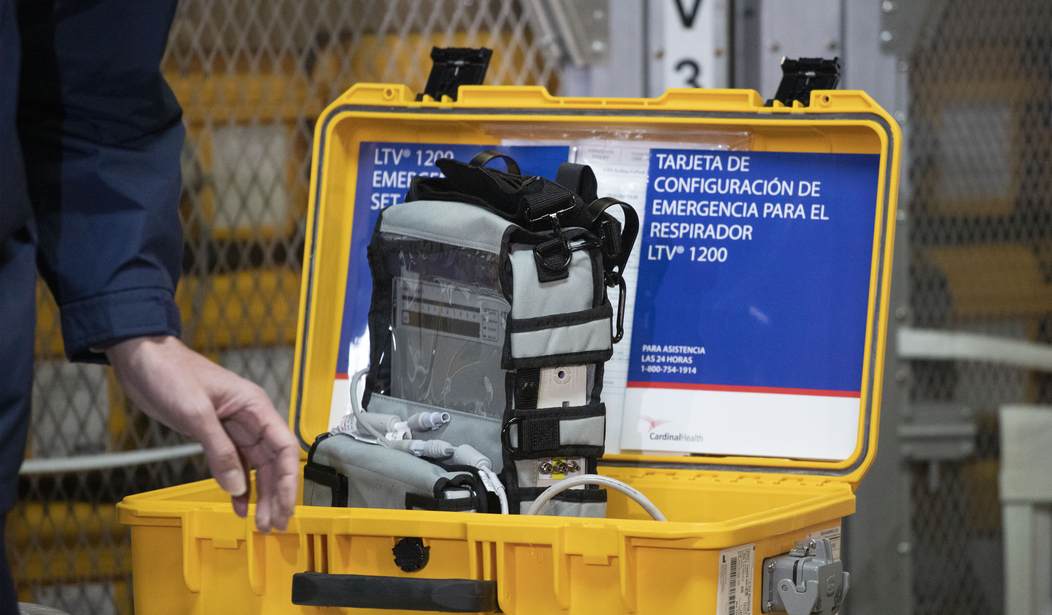Medical devices have become central to the response to the coronavirus. Endless debate has occurred on the availability of ventilators. Ventilators are a “medical device,'' similar to wheelchairs, pacemakers and warmers for newly born children, and therefore are regulated by the Food and Drug Administration (FDA). Yet some who are repairing these same devices are not regulated and the worry is that the quality of servicing is substandard because third parties may not use the highest quality replacement parts and are serviced by individuals with little training. Ultimately, this impacts people who are afflicted with the coronavirus and need access to a working ventilator.
Some who call themselves “right to repair” advocates have created a solution in search of a problem. For years, they have fought against even the most basic oversight for currently unregulated third-party servicing who maintain and repair sophisticated medical technology and devices.
Now, with skyrocketing demand for the medical equipment needed to treat patients with coronavirus, such as ventilators and dialysis machines, right to repair supporters are using equipment shortages to renew their call for original equipment manufacturers (OEM) to relinquish their intellectual property to third-party service firms. Unlike these unregulated servicers, OEM servicers must undergo rigorous training, implement quality controls, register with the Food and Drug Administration (FDA) and report all maintenance and remanufacturing activities performed.
To be sure, many third-party servicers already do a good job of repairing equipment and many OEMs work directly with third-parties or even serve as third-party servicers for each other’s equipment. But this doesn’t include all of them.
Unfortunately, third-party firms aren’t required to make themselves known to the FDA, a level of accountability that even many dietary supplement manufacturers must meet, let alone those who are expected and trusted to repair life-saving medical equipment. In fact, a 2018 report from the FDA couldn’t even accurately estimate the total number of third-party servicing firms in the U.S., eventually landing on a number between 16,000 and 20,000. So, in essence, federal regulators have a big blind spot and can’t put an exact figure on the number of firms operating on our healthcare system’s most vital medical equipment.
Recommended
When discussing the “right-to-repair” issue more broadly, it’s also necessary to consider that not all devices are the same. If something goes wrong when repairing a refrigerator, the worst-case scenario is that it may need to be exchanged for a new one. In the realm of medical devices, however, the stakes are much, much higher. Just imagine the consequences of a faulty repaired MRI machine – or an improperly maintained ventilator. It’s for precisely this reason that OEMs are held to stringent safety and quality standards– the same requirements that third-party services should be mandated to abide by.
While the shortage of ventilators was a serious challenge, and one in which many original equipment manufacturers quickly filled, the call for more unregulated servicing of medical device equipment to fill the void is a red herring.
Rather than advocating for more power to expand unregulated servicing , third-party service firms should register with the FDA (i.e., let the FDA know they exist in the first place), develop a streamlined mechanism for reporting adverse events, and adopt quality management systems that meet the same standard required of OEM servicers. These moves would all be a step in the right direction toward improving patient safety– which should be our collective goal.
It’s clear third party servicers are taking advantage of this crisis by advocating for policy that jeopardizes public safety and is unnecessary. Keeping an eye on third party medical device servicers makes sense. Medical devices have become the last line of defense to save the lives of people who can’t breathe because of the coronavirus impact on the lungs and it makes sense to implement policies that make sure that the ventilators work the way intended by the manufacturer and health care provider.
























Join the conversation as a VIP Member